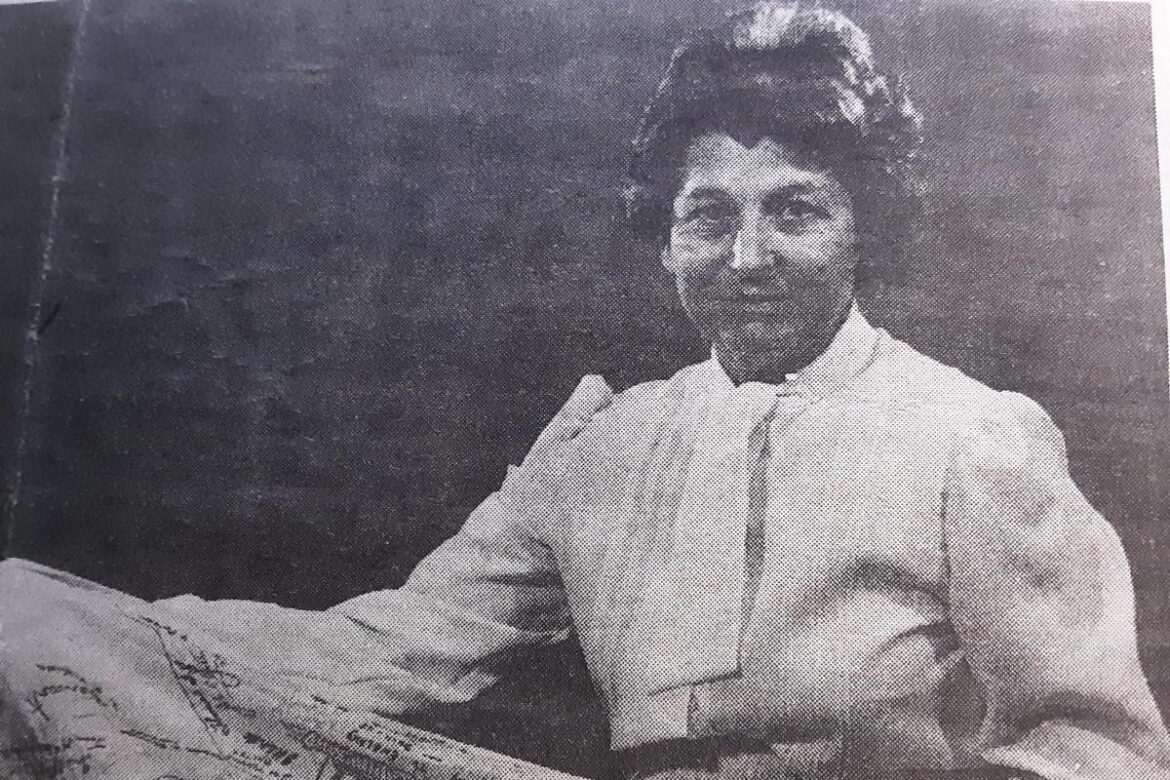As we approach the 80th anniversary of VJ Day, it is important that we remember the women, as well as the men, who suffered at the hands of the Japanese, and one of them was Eileen Hammond, who later became a night nurse at former Little Plumstead Hospital in Norwich.
It was 40 years ago when we told how Eileen, then in her early teens, swam through sewers to steal food to keep starving prisoners alive in the notorious Changi Prison in Singapore and was then tortured in front of her family.
Back in 1942, she was one of three sisters and three brothers born to the Malayan wife of a British prison officer, Thomas Harris, stationed in Singapore.
When the Japanese took over, her father was taken prisoner and urged his wife and children to pass themselves off as Malayan, “so the Japanese won’t harm you.”
Prisoners of war at Changi Prison, Singapore, when they were liberated in August 1945 (Image: State Library Victoria Collections/Flickr) Dark-haired and dark-skinned, they tried to, but when their mother gave birth to a blond, fair-skinned and blue-eyed baby, the Japanese swooped on the family and killed the baby, forcing the family to watch.
The body was left in the house, which was burnt and the family were taken to the notorious Changi Prison, in the women and children’s section.
At Changi, Eileen learned to swim along the monsoon drains and sewage channels to get inside the male prison with messages and steal food from the cookhouses to share with prisoners.
And when she and her family were moved to the Siam Road Internment Camp she carried on her murky travels through sewers and drains.
“I would swim the sewer every night to get into the Japs’ quarters and I’d pinch their food,” she told us in 1985.
“I’d take eggs and chickens and I’d drape them round my neck and swim through the sewers.
“It wasn’t hygienic, I know, but the people in the hospital were desperate for food, so we didn’t care.
“People were starving.
“We’d eat grass and snails, whatever came into our grip.
Freedom at last! Prisoners of War released at Changi after VJ Day in August 1945 (Image: Newsquest archive) “Prisoners were so desperate for food they would fight over who would get to eat a snail.
“The Japanese knew someone was stealing their food, but they couldn’t work out who or how until near the end of the war when they somehow found out it was me,” said Eileen.
“They called me out one day and I was tortured in front of my family – this was common practice in the camp.
“My mother, who was sick, was brought out on a stretcher to witness it.
“My father, who was in the men’s section of the camp, got to hear I was to be tortured, and he went berserk climbing over the fence and running towards where I was to be tortured.
“The Japs really laid into him for this.
“It seemed like they broke every bone in his body.
“I remember them picking him up afterwards.
“His body was limp,” added Eileen.
“She was beaten savagely, bitten and cigarettes were stubbed out on her body while her family looked on.
“She was in the camp from the age of 12 to 15.
“One day we woke up and all the guards had gone.
“There was nothing, but we didn’t really know for sure that the end of the war was coming.”
When the family were reunited, her father, who had been a big man weighing more than 17 stones, weighed just under four stone.
When our reporter Steve Regan spoke to her in 1985, Eileen, then aged 53, lived in Elizabeth Road, Thorpe, and worked as a night nurse.
Recovering from their ordeal, prisoners of war following the end of the Second World War in the Far East 80 years ago (Image: Newsquest archive) She told us: “We really were forgotten.
“No-one really wanted to know about us after the war.
“The Government weren’t interested in what went on in those prison camps – and that’s still the case today.”
Her parents both died in 1949, just four years after the harrowing ordeal was brought to an end.
In 2002, Eileen, then a member of Children of Far East Prisoners of War, attended an event at the Imperial War Museum to mark the 60th anniversary of the day that changed their lives.
She took with her a tablecloth from the camp featuring the signatures of fellow prisoners and met Countess Mountbatten of Burma.
“I still wake up thinking of it there in front of me,” said Eileen.
“You never get rid of what you saw and went through and your parents.
“I have good days, and I have very, very bad days,” she said in 2002.
“To be continued…


AloJapan.com